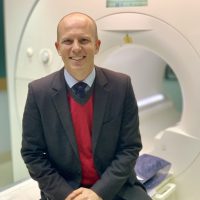Professor Martin Ugander has a research interest in non-invasive cardiac imaging and cardiac magnetic resonance imaging (MRI), with a focus on the diagnoses ischemic heart disease, myocarditis, and heart failure, as well as basic cardiac pumping physiology.
To hear Martin discuss his some of his work see his recent discussion with the team from the House of Wellness from Channel 7.
Martin’s research spans technical, pre-clinical translational, and clinical cardiovascular imaging using cardiac MRI, echocardiography, myocardial perfusion single-photon emission computed tomography (SPECT), x-ray computed tomography (CT), and electrocardiography (ECG).
Professor Martin Ugander’s latest research partially funded by Heart Research Australia focuses on developing and using state-of-the-art cardiovascular magnetic resonance imaging (MRI) to better understand, diagnose, and evaluate treatment in heart failure. The research specifically focuses on the challenges related to:
- Inefficient filling of the heart
- Thick walls of the heart
- A reduction in blood flow to the smallest vessels of the heart.
Heart failure affects about 40 million people worldwide, equating to 2% of all adults and 6-10% of people over 65 years of age. Once diagnosed, heart failure leads to 50% mortality within 5 years, which is poorer survival than for most cancers. This equates to a large patient group with a sizable burden of hospitalisation and premature death.
To read about Professor Ugander’s latest work click here.

